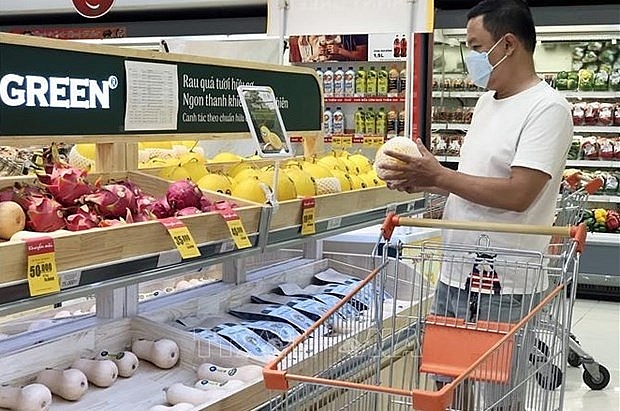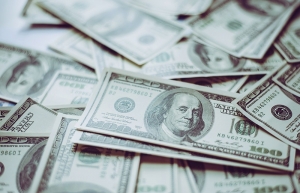Ongoing inflation worries compel tightened focus
The petrol price in the domestic market was revised down last week, marking the 22nd revision so far this year, which have included 13 increases. The three cuts in August lowered petrol prices by 14.52 per cent and diesel oil prices by 12.9 per cent compared to July, leading to a 5.51 per cent fall in the price index of the transport services.
 |
| Illustrative image (Photo: VNA) |
In Vietnam, the selling fuel prices are implemented under the market mechanism under the state’s regulation and in line with the world’s fuel prices and the nation’s socioeconomic situation in each specific period, according to Decree No.83/2014/ND-CP, which was issued eight years ago.
According to the General Statistics Office (GSO), the continued reduction of petrol prices has contributed to easing the inflation pressure significantly in the coming time, should there will be no resumed increase in such prices.
The inflationary pressure subdued remarkably in August thanks to the government’s efforts to pare down petrol prices, although prices of other goods and services kept escalating.
The consumer price index (CPI) climbed slightly by 0.005 per cent in August on-month – the lowest increase in August during the past five years. The CPI in August expanded 3.6 per cent against last December and 2.89 per cent on-year.
On average, the CPI ascended 2.58 per cent on-year in the January-August period, manifesting that the inflation pressure was easing considerably on government efforts at reducing petrol prices from the beginning of August.
The GSO said that the drop in transportation services prices contributed to pushing down the CPI in August by 0.53 percentage points.
Such decreases in petrol prices have caused a reduction in prices of many indispensable items in the local markets. For example, at several VinMart+ supermarkets in Hanoi, prices of cooking oil, spices, and salt have gone down by 5-10 per cent.
At last week’s government cabinet meeting, Prime Minister Pham Minh Chinh underlined amid global uncertainties, “stabilising the macro-economy and controlling inflation remain one of the top priorities.”
He required management agencies to control the cost of goods and services so that inflation can be kept at below 4 per cent this year as set by the National Assembly. The Ministry of Finance forecast the CPI this year at 3.37-3.87 per cent while the GSO projected 3.4-3.7 per cent.
Global analysts FocusEconomics told VIR that price pressures are easing in Vietnam. “Our panel projects the headline reading to average below the government’s 4 per cent target this year, peaking in Q4 due to higher food prices and a rebound in domestic activity. We expect inflation to average 3.7 per cent in 2022, and 3.8 per cent in 2023,” FocusEconomics said.
“Price pressures are likely to persist throughout the year, as private consumption and investment accelerate. Moreover, the rising prices of key commodities on global markets, especially agricultural products, will boost inflation as well,” it added.
Also, the International Monetary Fund (IMF) in July said that Vietnam’s headline inflation is projected at 3.9 per cent, and core inflation at 2.3 per cent by the end of 2022, citing that higher fuel prices will weigh on 2022 headline inflation both directly and through spillovers from energy-intensive sectors to the rest of the economy.
Era Dabla-Norris, assistant director of the Asia-Pacific Department and mission chief for Vietnam at the IMF, told VIR in July that though Vietnam is implementing a $15 billion fiscal and monetary package to support the Programme for Socioeconomic Recovery and Development (PSRD), the package will not threaten the government’s target of controlling inflation at about 4 per cent for 2022.
“Although recent data show that activity is strong and growing, there is still slack in some segments of the economy - especially in some service sectors. Moreover, although the labour market is recovering, the unemployment rate is still above pre-pandemic levels and underemployment remains relatively high,” Norris said. “Therefore, we do not see the PSRD as a major driver of inflation in 2022, when the pressure on prices is expected to come largely from imported commodity inflation and the consequent higher domestic prices for fuel, transportation, and some production inputs.”
The Asian Development Bank also stated that Vietnam’s inflation forecasts are maintained at 3.8 and 4 per cent as food production, once external demand is met, will remain ample.
 | Inflation risks pose questions for exchange rate policy In response to the recent Fed’s interest rate hike, the State Bank of Vietnam is predicted to tighten its monetary policy in an attempt to curb inflation, with a focus on controlling the exchange rate. |
What the stars mean:
★ Poor ★ ★ Promising ★★★ Good ★★★★ Very good ★★★★★ Exceptional
Related Contents
Latest News
More News
- Tet event in Japan celebrates success of 14th National Party Congress (January 25, 2026 | 10:04)
- 14th National Party Congress wraps up with success (January 25, 2026 | 09:49)
- Congratulations from VFF Central Committee's int’l partners to 14th National Party Congress (January 25, 2026 | 09:46)
- List of newly-elected members of 14th Political Bureau announced (January 23, 2026 | 16:27)
- 14th Party Central Committee unanimously elects To Lam as General Secretary (January 23, 2026 | 16:22)
- List of members of 14th Party Central Committee announced (January 23, 2026 | 09:12)
- Highlights of fourth working day of 14th National Party Congress (January 23, 2026 | 09:06)
- Press provides timely, accurate coverage of 14th National Party Congress (January 22, 2026 | 09:49)
- Press release on second working day of 14th National Party Congress (January 22, 2026 | 09:19)
- Minister sets out key directions to promote intrinsic strength of Vietnamese culture (January 22, 2026 | 09:16)

 Tag:
Tag:

















 Mobile Version
Mobile Version